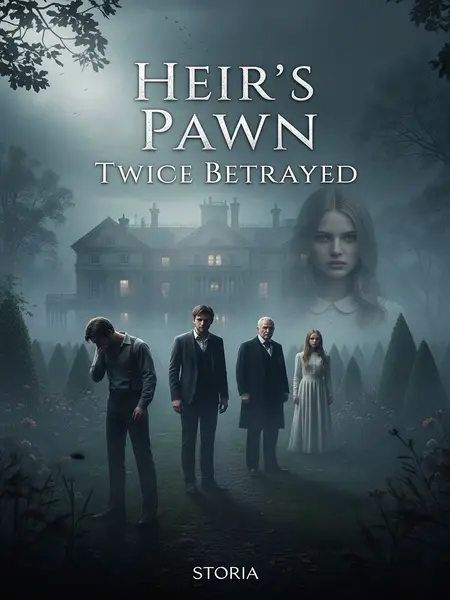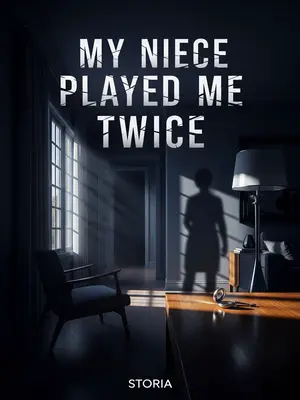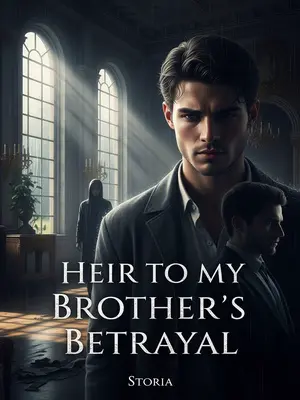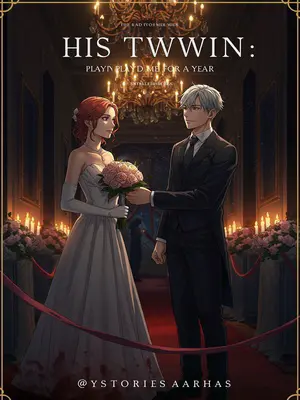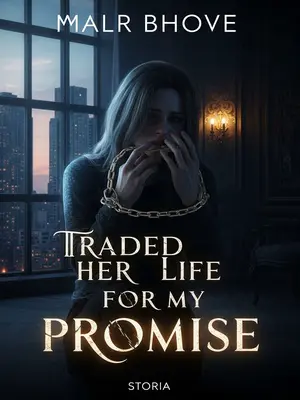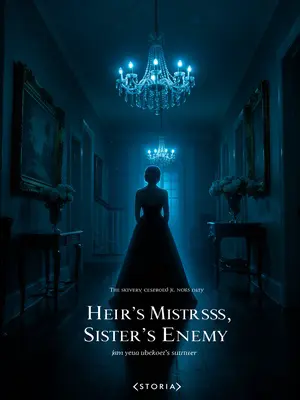Chapter 1: The Reward That Changed Everything
I saved a young man from beneath the bodies after a fire.
The smell of smoke and blood still clings to me, even now, all these years later. Sometimes, late at night, I can almost hear the crackle of burning wood. The desperate hush of my own breathing as I dragged him out, his weight awkward and heavy in my arms.
I didn’t know then how much everything would change because of that moment. But it did.
Later, he came back, reclaimed his place as heir to the Whitmore family fortune, and took back power from his father.
The Whitmores—around here, everybody knows their name. Their estate sits up on the hill, all white columns and sprawling lawns, the kind of place folks drive by slow, just to gawk. When Gabriel Whitmore returned, it was the talk of the town. Old money, new drama. And me, right in the thick of it, though I never really fit in.
When we met again, it was in the grand hall of the Whitmore estate. He sat at the head of the table, looking down at everyone.
The room was so quiet, you could hear the tick of the old grandfather clock in the foyer. The air smelled faintly of lemon polish and something older—like secrets and dust. Gabriel looked different up there—older, sharper. The kind of man who could command a room with a single glance.
"Lila Reed, what reward do you want?"
His voice echoed off the marble and wood, heavy with the Whitmore name.
I could feel every eye in the room flick toward me, waiting. Judging. It made my skin prickle. I hated being the center of attention.
In that moment, it all came rushing back—all of it, crashing in at once.
It was like a dam breaking. Faces. Voices. The ache of old wounds. I felt them all at once.
My heart pounded. For a second, I wasn’t sure if I was standing in that grand hall or somewhere else entirely.
This isn’t the first time around, I realized.
The memory hit me so hard, it almost knocked the breath out of me.
I knew what would happen next. I’d lived it before—every awkward silence. Every sidelong glance. The weight of wanting too much.
In my previous life, I asked for marriage. What I really wanted was a place in his world.
I remember the hope in my voice. The way my hands shook as I spoke.
I wanted to belong, to have a seat at the table—not just as a guest, but as family. Maybe I was naive. Maybe I was just desperate. Who knows.
But he married the childhood sweetheart he’d grown up with. Locked me away in a secluded guesthouse on the property.
Sarah Langley—her name still stings. I watched their wedding from the window. The sound of laughter drifted across the lawn while I stood alone.
My world shrank to four walls and a view of the lake, the promise of belonging slipping right through my fingers.
This time, I bowed my head. Deeply.
My neck ached from the angle, but I kept my eyes on the floor. My heart thudded. I forced myself to stay small, invisible. I wouldn’t make the same mistake twice.
"Could I ask for a favor...?"
My voice barely carried across the room. Still, I could feel the words hanging there, fragile as glass.
I tried to keep my hands steady at my sides. But my fingers curled tight in my skirt.
"Would you let me call you big brother, Mr. Whitmore?"
It felt strange, saying it out loud. The words tasted foreign—but safer than what I’d wanted before.
I could almost hear Nanny Ruth’s voice in my head. Telling me to be careful. To keep my head down.
I swallowed hard, waiting for his answer. God, I hoped he’d say yes.
"When you see Mr. Whitmore later, you keep quiet and don’t say anything you’ll regret, you hear?"
Nanny Ruth’s voice was stern, but I could hear the worry underneath. She always fussed over me.
She fussed over me like a mother hen. Her hands always busy—straightening my collar, brushing invisible dust from my shoulders.
I nodded, promising. Even though my stomach twisted with nerves.
I followed behind Nanny Ruth, step by step. Her perfume lingered in the air.
Her shoes made soft clicks on the polished wood. I matched her pace, careful not to scuff the floor.
The hallway seemed to stretch forever. Old portraits lined the walls, their eyes following me. I kept my gaze down, counting the steps.
Inside the old estate, the autumn wind rattled the windows. A maple leaf skittered across the marble floor at my feet.
The leaf caught for a moment on my shoe before swirling away. As if the house itself was exhaling.
I shivered, pulling my cardigan tighter. Why did it feel so cold in here?
For some reason, I felt a strange sense of déjà vu. Like I’d been here before.
It was more than just nerves. It was the eerie certainty that I’d walked this path before. Heard the same distant laughter. Smelled the same faint scent of cinnamon from the kitchen. Like the world was looping, waiting for me to make a different choice.
It seemed... I don’t know.
It seemed as if I’d been here before. I could almost remember.
My hand brushed the banister, rough with age. I half-expected to see my own fingerprints worn into the wood from another life. The thought sent a chill down my spine.
Today was the third day since Gabriel Whitmore reclaimed his title as heir. It still felt unreal.
The whole town had been buzzing about it. The papers ran stories. The neighbors gossiped over coffee at the diner. The Whitmore estate was alive with activity—lawyers, relatives, people coming and going at all hours. The sense of change hung thick in the air.
In the grand dining hall, he promised rewards to those who’d supported him. Stock shares. Management roles. Prestige.
They handed out envelopes and handshakes like party favors. I watched from the shadows, invisible, while fortunes changed in a single afternoon. It was the kind of scene you’d see in a movie. Not real life.
Nanny Ruth wanted me to wait outside. Away from all the drama.
She pressed her hand to my shoulder, gentle but firm. “You just sit tight, honey. Don’t get any ideas.” Her eyes darted to the closed doors, worry etched deep in the lines of her face.
She kept repeating herself, like she had a hundred times before. I guess she thought I needed reminding.
The words tumbled out of her, over and over, as if she could shield me with them. “Keep your head down. Don’t ask for too much. Just a little money, that’s all.”
"When the time comes, just ask for a little money, Lila."
Her hands wrung the hem of her apron. “Don’t get greedy. You’re a good girl, Lila. Don’t forget that.”
Sarah Langley—the judge’s daughter—grew up with Gabriel. They’re childhood friends. Her family is old money. You need to know your place.
Her words stung, but I knew she meant well. Sarah’s family had roots in Maple Heights that went back generations. People like me didn’t stand a chance against that kind of legacy.
I agreed to everything. What else could I do?
I nodded, swallowing the lump in my throat. I’d learned to say yes. To keep my dreams tucked away where no one could see them. It was easier that way.
Seven days since entering the estate. Just a week, but it felt like forever.
A week felt like a lifetime. The days blurred together—early mornings, long afternoons. The soft hush of servants moving through the halls. I kept to myself, afraid to draw attention.
I’d been living in a small guest room all this time. It felt like a cage.
The room was cozy enough, with a window overlooking the gardens and a patchwork quilt on the bed. But it wasn’t home. It never would be.
This housekeeper, Nanny Ruth, treated me well. She fussed over me a little too much sometimes.
She brought me extra blankets, made sure I ate breakfast. She reminded me to keep my shoes by the door and not to wander after dark. Her fussing was a comfort, even if I pretended to be annoyed.
I never told her. Some things are better left unsaid.
Some secrets are too heavy to share, even with someone kind. I kept the truth locked away. Afraid of what might happen if it ever slipped out.
Back then, I pulled Gabriel out from under the bodies after a fire.
The flames were everywhere, licking at the rafters, turning everything to ash. I found him half-buried, barely breathing. My hands shook as I dragged him free, praying he’d survive. It felt like a lifetime ago.
Until the old family lawyers found him and brought him back to Maple Heights. That was the end of our quiet life.
They arrived in a black car, all business and urgency. I watched from the porch as they hustled him away, promising he’d be safe. I didn’t know if I’d ever see him again.
For two years, he lived in our remote lakeside town. It was just us.
It was quiet there—just the wind in the pines and the cry of loons at dusk. We kept to ourselves, far from the world of the Whitmores and their endless drama.
I helped him clean his wounds. Nursed him back to health.
He was stubborn, refusing help at first. But I saw the pain in his eyes, the way he winced when he moved. I learned to be gentle. To patch him up without asking too many questions.
He helped me catch fish, chop wood, repair the leaky roof of my tiny cabin. We made it work.
We built a life together, simple and quiet. He’d laugh when I tangled the fishing line, or tease me when I missed a nail with the hammer. I started to believe we could make it work, just the two of us.
My parents died young. I’d been alone since I was a teen.
The ache of their absence never really faded. Some nights, I’d sit by the fire and talk to them, hoping they could hear me. Meeting Gabriel felt like a second chance. A reason to hope again.
After meeting Gabriel, I thought my life would finally change. I let myself believe.
He brought light into the shadows. I started to dream of a future—one with laughter, warmth, and someone to share it with. It felt possible, for the first time in years.
He was gentle with me. Quiet, thoughtful.
He’d listen more than he spoke. Eyes soft, hands steady. When he did speak, it was with a careful kindness that made me feel seen.
Standing in front of the kitchen table, he took my hand and wrote out a line from an old poem. "Hope is the thing with feathers that perches in the soul."
His penmanship was careful, each letter deliberate. He smiled as he guided my hand, his touch warm and reassuring. I kept that scrap of paper tucked in my Bible for years.
He taught me to read, bit by bit. Patient as ever.
We’d sit by the window in the evenings, the light fading, and sound out words together. He never lost patience, even when I stumbled. Every page turned was a small victory.
At the time, I thought we were just like that poem. Fragile, but hopeful.
